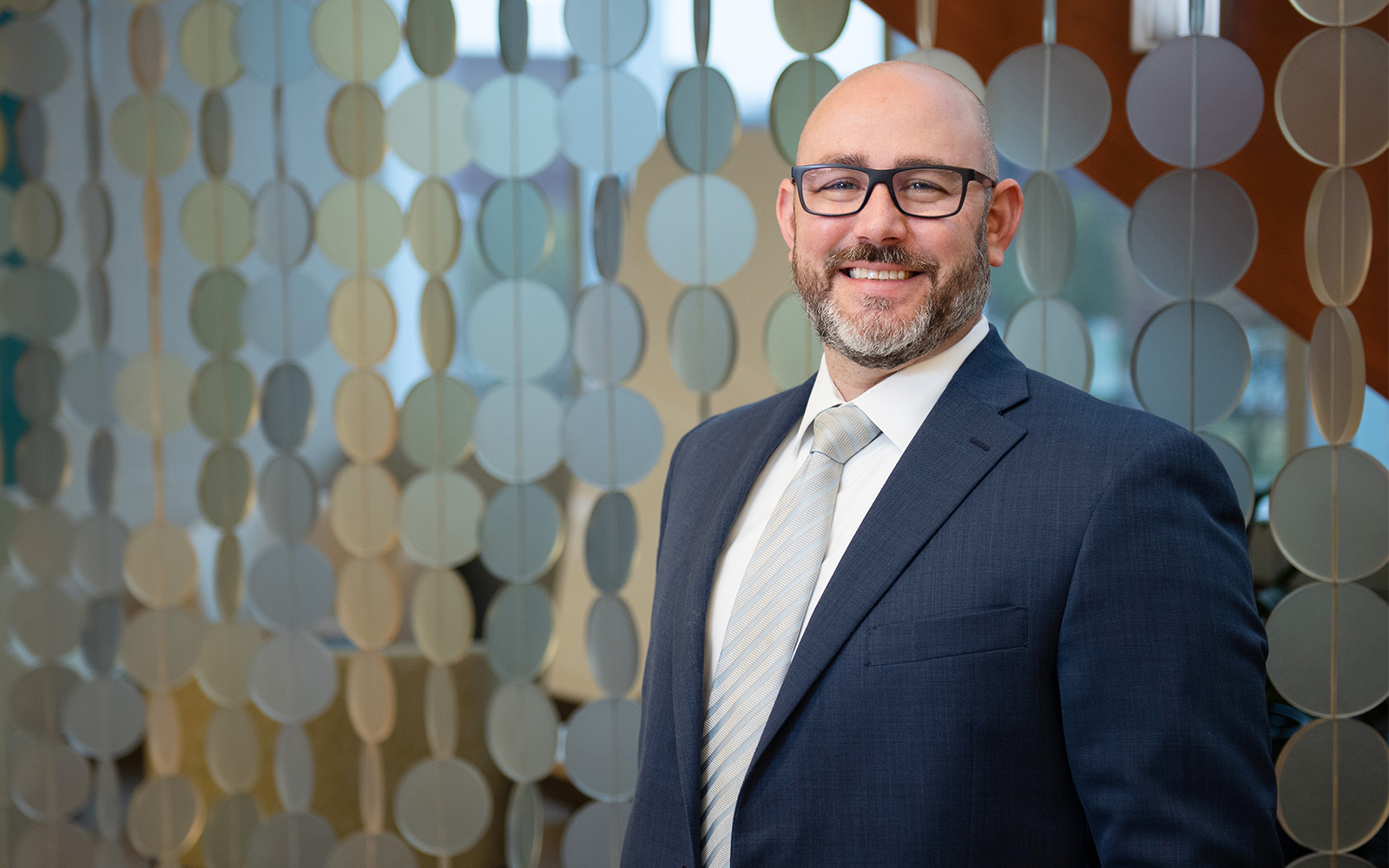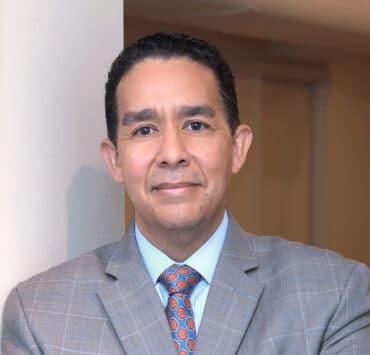Michael Kos, vice president of revenue cycle at Memorial Health in Springfield, Illinois, has had a deep interest in science and medicine since he was a child.
“I often wondered about the disease process—what causes illness, how it progresses, and how to treat it,” he recalls. “I also had my share of orthopedic injuries and strove to be an involved patient.”
Those experiences kindled a desire to be a pediatrician or orthopedist, and the flames were fanned by a high-school job at Riley Hospital for Children in Indianapolis. “I worked with Dr. Kosmas Kayes, an orthopedic surgeon, and he permitted me to scrub up and observe some of his procedures firsthand,” Kos says. “I watched him place Harrington rods in a scoliosis patient. I was amazed to see that patient, who had been wheelchair-bound, actually get up and walk.”
At Indiana University, Kos pursued a grueling path: he was in the pre-med/pre-law track, earned bachelor’s degrees in criminal justice and political science, and minored in Russian and East European and West European studies.
“Learning comes in stages—you acquire new knowledge, then sort of plateau as you implement it. Then you learn more, and it repeats.”
Michael Kos
He then shelved his medical school dream, earning a master’s degree in public administration at the Paul H. O’Neill School of Public And Environmental Affairs, while completing some of the requirements for a JD at Indiana University’s Robert McKinney School of Law.
Finding law school too rigid for his taste, he obtained a second master’s in accounting through the university’s Kelly School of Business. During his graduate studies, Kos secured his first “real-world” job, as a budget analyst specializing in economic development and technology within the state of Indiana’s Office of Management and Budget.
It was like being thrown into the deep end of the pool.

“I was suddenly involved with nineteen different state agencies, monitoring fiscal matters, reviewing policies and administrative rules, issuing legislative financial impact reports—it was a lot of responsibility for someone of my age,” he says.
Fortunately, his supervisor and mentor was William Bogard, the deputy director of the division. “William was a phenomenal leader,” Kos recalls. “He molded me into a great analyst. William was firm, supportive, and taught me how to be a good partner, how to build teams, and how to use influence to adapt to situations. But he also taught me about compassion and other soft skills. That’s important, because it’s easy to forget that our fiscal decisions will impact actual people; they’re not just numbers on a page.”
“My vision is to make the process patient-friendly, efficient, and transparent.”
Michael Kos
Kos met his future wife in the same government building, and her acceptance of his proposal came with one condition. “She told me that if we were going to get married, we’d have to move to Springfield, so she could be closer to her family,” Kos says.
That was all the incentive he needed to apply to Memorial Health in Springfield. A community-based, not-for-profit corporation, it’s one of the leading healthcare organizations in Illinois, dedicated to patient care, education, and research. Memorial’s mission to improve lives and build stronger communities through better health resonated with him, providing the opportunity he wanted to serve others.
Another jump into the deep end of the pool.
He joined the company in 2012 as lead analyst in its managed care department. “A fair amount of my existing skills transferred over,” Kos says, “such as analyzing and reviewing data—but I still had to learn all the specifics of managed care and payor strategy. For me, learning comes in stages—you acquire new knowledge, then sort of plateau as you implement it. Then you learn more, and it repeats.”
Over the past decade, Kos’s responsibilities have steadily increased: he was promoted to managed care manager in 2014; director of managed care in 2015; system director of managed care and payor relations system in 2017; and assumed his newly created current position in 2019.
“Revenue cycle processes are complex,” he says. “They begin at the moment a patient schedules an appointment, and end only when all components of the bill are completely paid. My vision is to make the process patient-friendly, efficient and transparent, so our patients will know Memorial Health is there for them.”
As an example, he offers the system’s longstanding partnership with Commerce Bank, which is its primary financer of patient balances. “Through Commerce, we can offer our patients 0 percent financing so they can amortize their balances smoothly,” Kos says. “We can also offer other forms of financial assistance.”
“Revenue cycle processes are complex. They begin at the moment a patient schedules an appointment, and end only when all components of the bill are completely paid.”
Michael Kos
Kos is quick to attribute his department’s success to his ten-person team. “I couldn’t ask for a better crew,” he says. “We had just connected with a new hospital in Decatur when the COVID pandemic hit. Memorial Health had also implemented a new revenue-cycle system, Cerner Patient Accounting. Despite all those challenges, the team responded tremendously.”
He adds that he can often be a virtual bystander as his team takes on projects. “They’re so engaged and on top of everything, and they all work together—unselfishly—to execute our goals. It’s been wonderful to watch them grow,” he says.
One of his key initiatives is the ongoing expansion of the revenue-cycle architecture across Memorial Health’s footprint. “We actually have five hospitals in our system, with over seventy locations, and we intend to bring streamlined electronic record-keeping and patient accounting first to our hospitals in Jacksonville and Decatur, and eventually across the entire system,” Kos says.
“We also intend to share resources and colleagues among our locations for greater efficiencies and better outcomes.”
CommerceHealthcare® is a proud partner of Memorial Health on their HSF® (Health Services Financing) program. We provide health systems automated receivables management and payment services, patient loan financing and lending solutions. Our team of healthcare and banking professionals understand the business of healthcare and the needs of patients. We can help you find cost savings, improve cash flow, reduce financial risk and create a better patient experience.


